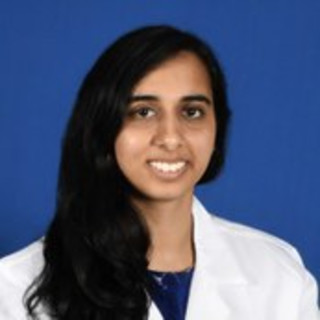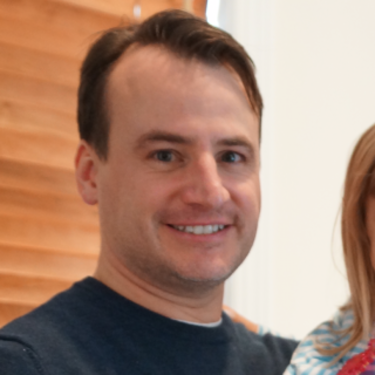The backbone of surgical training is medical knowledge about a specialty, which is usually taught either simultaneously or is a prerequisite to performing procedures. Along with the medical and surgical aspect of training, certain aspects of surgery are picked up along the way. My own journey as a surgical trainee, first in residency and now in fellowship, allowed me to explore different methods of improving my surgical performance, outside of practicing and learning in the OR and clinic. As a surgical retina fellow, I have found that sleep, good nutrition and hydration, and a relaxed OR environment are the lifestyle and environmental changes that help my surgical technique.
While the importance of sleep may be obvious in real life, many studies have shown how profoundly sleep deprivation affects surgical performance. Studies demonstrate decreased surgical dexterity with sleep deprivation, particularly in surgical decision-making, planning, tasks requiring higher cognition, and overall outcomes. Conversely, other studies do not show that sleep deprivation affects surgical performance. While there is no set definition for sleep deprivation, whether it is after a 24-hour call shift or less than four hours, several objective scales are used in studies to measure sleep deprivation, such as the Epworth Sleepiness Scale and the Pittsburgh Sleep Quality Index. In my own experience and in those of my colleagues, sleep deprivation means not feeling well rested or confident in my own cognitive abilities as a result of improper sleep.
Caffeine is often used by trainees to account for not feeling well rested. However, caffeine is controversial in ophthalmology, with some studies showing no effect on performance and others showing that caffeine intake can affect surgical performance, particularly in terms of surgical time and tremor. Throughout my training, I have personally seen how a good night’s rest affects my own ability to think and perform during surgery. Consequently, my routine prior to the night of surgery involves relaxation and sleeping early so that I can feel my best the next day in the OR.
A survey of 94 surgical trainees showed that 79% of subjects experienced dehydration within six hours of operating, with most experiencing symptoms such as headache, constipation, and orthostasis. The survey also showed that men and women experienced dehydration differently, with 92% of women versus 60% of men experiencing dehydration symptoms. Overall, 71% of trainees interviewed believed that dehydration frequently affected surgical performance. This simple survey shows how common this phenomenon is in the OR. Proper hydration and nutrition are essential to performance in most fields, and particularly in microsurgical fields such as ophthalmology. Fasting in particular has been shown to increase hand tremor, and in microsurgical fields this can impact surgical performance. I have learned for myself that having a good breakfast is one of the most important factors that allows me to fully focus on my surgical cases and to have the steadiest hands. During the day, I attempt to eat even something as small as a nutrition bar so that I can maintain my momentum and not lose dexterity toward the end of the day.
Finally, having a relaxed and calm OR atmosphere affects the way that everyone, from the patient to the nursing staff, operates during a case. Several studies show worse surgical performance in the presence of acute mental stress. While many stressors are inherent to the surgical case itself (e.g., bleeding and procedural complexity), external factors such as distractions, time pressure, and equipment problems can be controlled.
Many surgeons use music to create a calm and relaxed surgical environment. A recent systematic review showed that five studies described the positive effect of music on surgery, especially of classical music when played at a medium level. This music improved both accuracy and speed of surgery. Additionally, music was shown to reduce patient anxiety before surgery. In ophthalmology specifically, music was shown to decrease patient anxiety during intravitreal injections and cataract surgery. While music was not found to have an effect on surgical performance, several surveys showed that it allowed OR staff to feel more calm and relaxed in the surgical environment and helped with efficiency.
Different institutions and surgeons have varying attitudes toward music in the OR. I have personally observed that relaxing, calm music or nostalgic music helps me feel less stressed during a procedure. At the very least, for me, music helps create a nice environment in the OR, where the surgeon, staff, and patient can enjoy something in common during what is a very stressful time for the person undergoing surgery.
While many industries such as the aviation industry or military have certain lifestyle specifications in place when performing delicate operations, these restrictions are not as clear in medicine. As a surgical trainee, I have learned through experience what changes I need to make in my own lifestyle to improve my surgical performance. I have learned that these small interventions are very important not just in my dexterity during surgery, but also in my own confidence and surgical decision-making during a procedure. As different aspects of residency and fellowship training are more closely studied, I hope that this area of surgical performance, particularly in microsurgical fields, is given more attention to allow surgeons to be at their best before and during a surgical case.
What methods do you use to ensure you are at your best during surgery? Share in the comments.
Dr. Rabia Karani is a Vitreoretinal Surgery Fellow at the Johns Hopkins Wilmer Eye Institute. She finished her ophthalmology residency at Columbia University in NYC and is a native of Houston. Her interests include public health ophthalmology, prevention of chronic diseases such as diabetes, and using imaging and technology to further develop treatments for retinal disease. Outside of work, she enjoys exploring museums and cities, learning about nature and animals, and traveling. Dr. Karani is a 2022–2023 Doximity Op-Med Fellow.
Image by GoodStudio / Shutterstock







